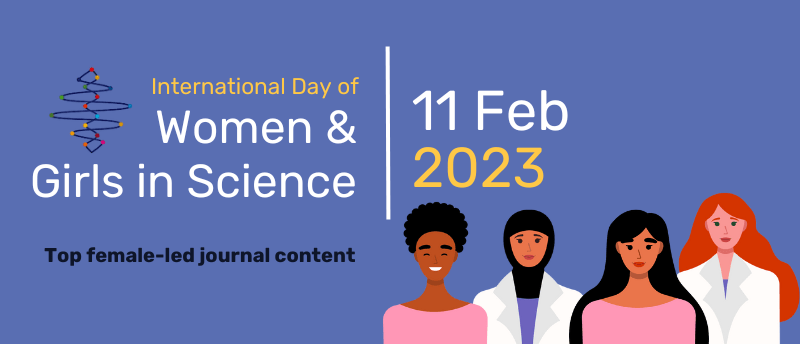International Day of Women and Girls in Science: top female-led journal content

To recognize the significant contributions made by women across the scientific community and to celebrate the International Day of Women & Girls in Science, we’ve compiled a list of outstanding articles from our Bioanalysis, Immunotherapy and Pharmacogenomics journals. This collection was based on citations and readership from 2022. Be sure to dive into our handy list the next time you need some female-led research inspiration!
Bioanalysis
Greener bioanalytical sample preparation. What is next?
Natalia Manousi.
In this article, Natalia discusses the concept of green chemistry and the importance of developing environmentally friendly methodologies for sample preparation in order to reduce the environmental footprint of this highly polluting experimental step.
Pertinence of microsampling in various nonclinical and clinical studies: the ICH perspective
Vaishali Londhe & Madhura Rajadhyaksha.
A hot topic from 2022, this article discusses the update to the ICH M10 guidelines. The guidelines are formed by both the regulatory authorities and the pharmaceutical industry, who work together on various scientific and technical aspects of drug registration. The article supports and details the use of microsampling techniques, which reduces overall total blood loss and facilitates sample transportation and storage.
Immunotherapy
Angioletta Lasagna, Marco Vincenzo Lenti, Irene Cassaniti, et al.
This case report discusses a 52-year-old lung cancer patient receiving a course of immunotherapy, who tested positive for HBV 10 days after receiving the Pfizer-BioNTech COVID-19 vaccine and was diagnosed with hepatitis and colitis. The article further explores the complex interaction between COVID-19 vaccination and immunotherapy and how this interplay could impact the frequency of immune-related side effects caused by immunotherapy. The article highlights the enhanced risk to immunotherapy patients posed by COVID-19.
Lidia Gatto, Enrico Franceschi, Alicia Tosoni, et al.
Here, the authors of this review article cover the impact of immune checkpoint inhibitors on hypermutated high-grade gliomas (HGG). The review concisely compiles current information on HGG’s and their sensitivity to immunotherapeutic agents.
Pharmacogenomics
Pharmacogenomics and clinical cultural competency: pathway to overcome the limitations of race
Apryl N Anderson, Amy R Chan & Youssef M Roman.
In this review, the authors discuss considerations for integrating clinical cultural competency (CCC) into required pharmacogenomic education in pharmacy and other health disciplines.
The importance of phenoconversion when using the CYP2D6 genotype in clinical practice
Emily J Cicali & Kristin Wiisanen.
Find out how clinical phenoconversion can be incorporated, either manually or through online tools and resources, into the interpretation and application of CYP2D6 results in clinical care in this editorial article.
Progression of precision statin prescribing for reduction of statin-associated muscle symptoms
Natasha J Petry, Jordan F Baye, Samantha Frear, et al.
This review explores the historical background of statins and their associated adverse effects and pharmacogenetic implications, while also providing clinical decision support and the latest CPIC guidelines.
Be sure to share the work your colleagues are doing on February 11 using the hashtags #WomenInScience and #GirlsInScience and watch out for our coverage of International Women’s Day and International Day of Women and Girls in Science across the site.




